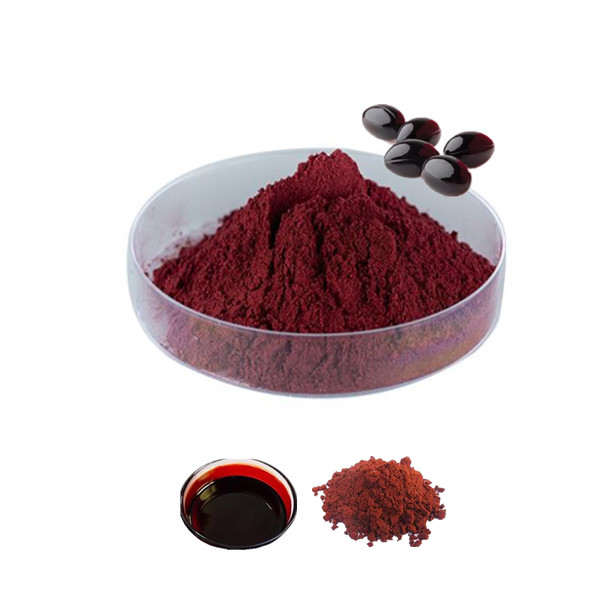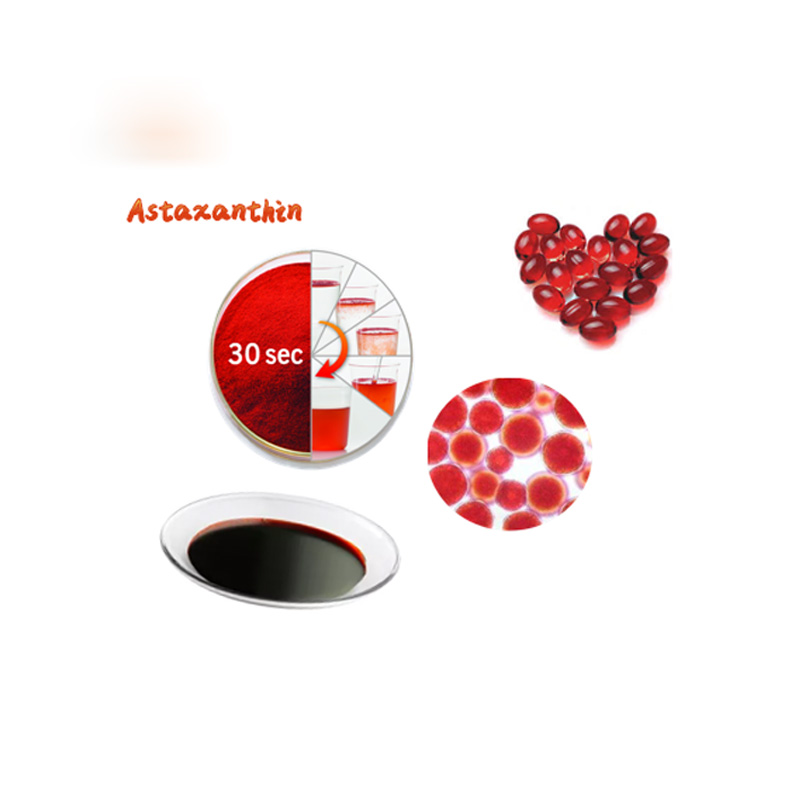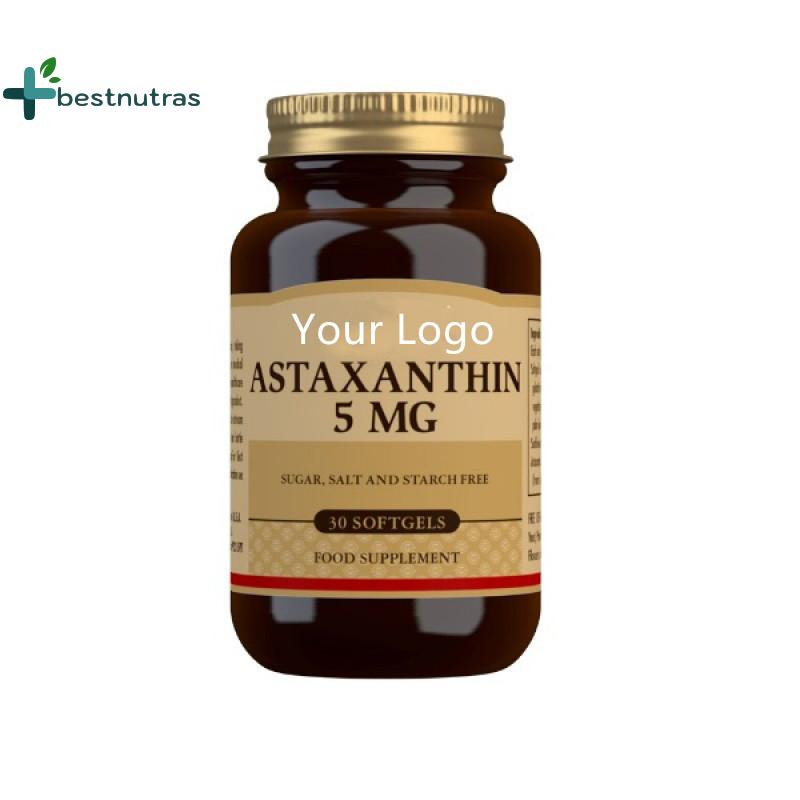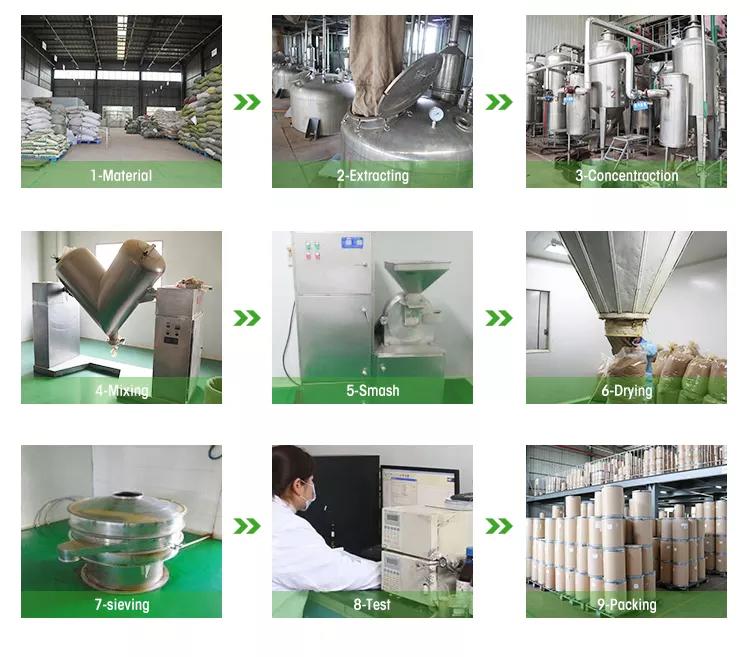Product Categories
- Herbals (5)
- Cosmetics Ingredients (3)
- Plantbased Ingredients (56)
- Botanical Extracts (33)
- Fruit and Vegetable Powder (8)
- Food additive (18)
- Dietary Supplements (10)
Product Name: Astaxanthin Powder
Synonym: Haematococcus pluvialis Extract; Natural Astaxanthin Powder; Natural Astaxanthin; Pure Astaxanthin
Source: Haematococcus pluvialis
Spec.: 2% 3% 5% 10%
Certificates: Kosher, Halal, ISO...
Samples: available for 10-20g
Applications: Feed additive, Pharmaceutical
Contact us: [email protected]
CATEGORY AND TAGS:
Astaxanthin is widely found in the biological world. Shrimp, crabs, fish, birds, some algae, and fungi all contain astaxanthin. Astaxanthin itself is orange-red. If the color of an animal is redder, it means that the body’s astaxanthin content is higher, and the ability to adapt to harsh environments is stronger. At present, astaxanthin is mainly produced in two ways: chemical synthesis and natural extraction. Chemically synthesized astaxanthin is not only expensive, but also significantly different from natural astaxanthin in terms of molecular structure, biological function, application effect, and biosafety performance. In turn, the extraction of natural astaxanthin has gradually become dominant.
The antioxidant capacity of astaxanthin is more than 6,000 times that of VC and 3,000 times that of resveratrol. Many well-known antioxidants, such as lycopene, have about 1,800 times less antioxidant capacity than astaxanthin. Astaxanthin reduces lipid peroxidation by inhibiting lipid peroxidation caused by free radicals, and can also be used to remove sulfides, disulfides, and nitrogen dioxide. Many red organisms in nature contain astaxanthin. Haematococcus Pluvialis is the main producer of natural astaxanthin in nature, and its astaxanthin content can reach more than 4%, surpassing all other organisms.

|
ITEM
|
STANDARD
|
TEST RESULT
|
|
|
Specification/Assay
|
≥5.0%
|
5.24%
|
|
|
Physical & Chemical
|
|||
|
Appearance
|
Red powder
|
Complies
|
|
|
Odor & Taste
|
Characteristic
|
Complies
|
|
|
Particle Size
|
≥95% pass 80 mesh
|
Complies
|
|
|
Loss on Drying
|
≤5.0%
|
Complies
|
|
|
Ash
|
≤5.0%
|
Complies
|
|
|
Heavy Metal
|
|||
|
Total Heavy Metal
|
≤10.0ppm
|
Complies
|
|
|
Lead
|
≤2.0ppm
|
Complies
|
|
|
Arsenic
|
≤2.0ppm
|
Complies
|
|
|
Mercury
|
≤0.1ppm
|
Complies
|
|
|
Cadmium
|
≤1.0ppm
|
Complies
|
|
|
Microbiological Test
|
|||
|
Microbiological Test
|
≤1,000cfu/g
|
Complies
|
|
|
Yeast & Mold
|
≤100cfu/g
|
Complies
|
|
|
E.Coli
|
Negative
|
Negative
|
|
|
Salmonella
|
Negative
|
Negative
|
|

The conjugated double bond, hydroxyl group and unsaturated ketone group at the end of the conjugated double bond chain in the astaxanthin molecule, as well as the structure of α-hydroxyketone composed of hydroxyl group and ketone group, can attract the unpaired electrons of free radicals Or actively donate electrons to free radicals, thereby effectively quenching free radicals in the environment, especially singlet reactive oxygen species. Astaxanthin is a powerful quencher of singlet oxygen, can scavenge oxygen free radicals, and is a powerful antioxidant. Astaxanthin can stabilize the structure of the cell membrane and reduce the permeability of the cell membrane, thereby limiting the entry of peroxide-initiating molecules, so compared with other β-carotene, vitamin E, α-carotene, lutein and tomato with the same structure Red pigment, astaxanthin has the strongest antioxidant capacity. Studies have shown that astaxanthin can reduce lipid peroxide levels by 40%, while beta-carotene and others can increase it by 85%.
Astaxanthin integrated into the cell membrane system can inhibit lipid peroxidation, avoid the damage of oxidation reaction to cells and DNA, thereby protecting the proteins in cells and promoting proteins to play a better role in the process of cell metabolism. It is this antioxidant capacity that allows astaxanthin to prolong the time for low-density lipoprotein (LDL) to be oxidized, and one of the important causes of arteriosclerosis is the oxidation of LDL, so astaxanthin can greatly reduce and reduce atherosclerosis. hardening occurs.
Compared with other carotenoids, astaxanthin can inhibit the growth of tumor cells such as colorectal cancer, liver cancer, bladder cancer, oral cancer and breast cancer. Studies have shown that astaxanthin can play a very important role in different stages of tumors. First, it can inhibit the pathogenic effects caused by aflatoxin B1, diethyl nitrite, phenylpyrene, nitrosamine and cyclophosphamide. Mutation effect; secondly, by inhibiting the production of putrescine, reducing the formation of tumor inducers; thirdly, astaxanthin can isolate cancer cells, through the linking ability of normal cells, make normal cells dominate, reduce the connection between cancer cells, and inhibit cancer cells Growth ability, reduce tumor transformation; finally, high concentrations of astaxanthin can kill tumor cells and inhibit the ability of cancer cells to spread.
Astaxanthin is widely used in aquaculture, food additives, cosmetics, medicine, health care products, etc.
Utilizing its color rendering effect, astaxanthin is added to fish, crab and shrimp feeds, which can improve meat quality, increase reproductive capacity, and increase survival rate. Its color rendering and antioxidant capacity make natural astaxanthin added It can be used in food to improve the freshness of food and maintain its color.
Focusing on the powerful antioxidant capacity of astaxanthin, various pharmacological and pharmacodynamic experiments and biological functions have been carried out rapidly. The outstanding preventive and therapeutic effects of eye diseases, skin diseases and other diseases have opened a door for its application in the fields of medicine and health care products.
 Best Nutras could supply the specification of 2%, 3%, 5%, 10% natural astaxanthin for different purposes. Besides, we could do private label contracting manufacturing for your dietary supplement brands. Welcome to send us your inquiry at [email protected].
Best Nutras could supply the specification of 2%, 3%, 5%, 10% natural astaxanthin for different purposes. Besides, we could do private label contracting manufacturing for your dietary supplement brands. Welcome to send us your inquiry at [email protected].

